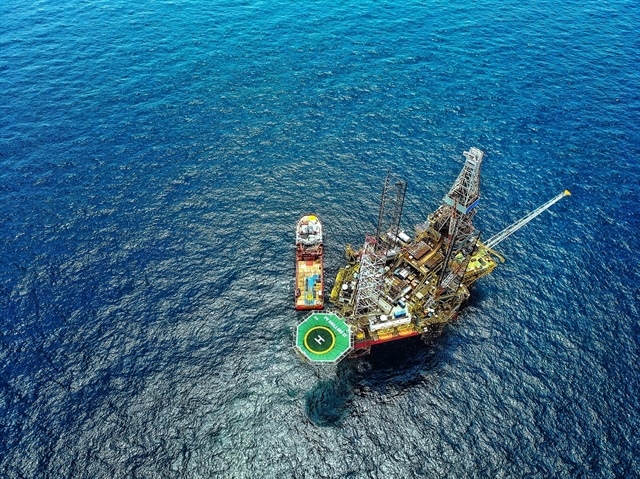Fertiliser stocks shoot up due to VAT change
Fertiliser stocks shoot up due to VAT change
Fertiliser stocks are surprising the market with many large names hitting the ceiling prices, mainly due to the Ministry of Finance’s decision to make fertiliser subject to VAT at the preferential rate of 5 per cent.

Their stocks surprised investors, with PetroVietnam Ca Mau Fertiliser JSC (DCM) experiencing six consecutive gaining sessions in the last two weeks, finishing VND11,300 per share on Friday.
During its annual share holder’s meeting, the company’s management board proposed to shareholders the company’s 2018 business plan, with target revenue of VND5.5 trillion and fertiliser consumption of 751,000 tonnes.
It aims to earn VND685 billion (US$30 million) and VND650 billion in pre-tax profit and post-tax profit respectively, higher than the previous year.
In 2018, Vietnam Oil and Gas Group (Petro Vietnam or PVN) plans to reduce its ownership at DCM from the current 75.56 per cent to 51 per cent.
Another stock seeing large growth is PetroVietnam Fertiliser & Chemicals Corporation (DPM). PVN will also reduce its ownership at the company to 51 per cent. Last week, DPM shares increased in four sessions in the total five trading sessions, finishing Friday at VND17,250.
The Southern Fertiliser JSC (SFG) recorded 7.1 per cent increase last week, the figure for Lam Thao Fertilisers and Chemicals JSC (LAS) and Van Dien Fused Magnesium Phosphate Fertiliser JSC (VAF) were 5.2 per cent and 2 per cent, respectively.
Law No 71/2014/QH13, which took effect on January 1, 2015, treats fertiliser as a VAT-free item. However, as VAT is exempted instead of a reduction to 0 per cent, domestic fertiliser enterprises have not been entitled to VAT refunds for input materials and this has eaten into the competitiveness of their products.
This had sent fertiliser prices rising 5-8 per cent.
Meanwhile, imported fertilisers are sold at lower prices than those of domestically-made products as the former enjoy a 5 per cent VAT reduction, hitting sales and production of local fertiliser companies.
Fertiliser producers have petitioned lawmakers to add fertiliser to the list of products subject to value added tax (VAT) as if the law states that fertiliser products are subject to a 0 per cent rate, enterprises can deduct tax payments for materials.
The Fertiliser Association of Viet Nam (FAV), the Viet Nam Farmers’ Union (VNFU) and the Viet Nam Chamber of Commerce and Industry have also suggested imposing a VAT rate of 5 per cent on fertiliser.
Responding the petition, the Ministry of Finance recently announced fertiliser will be added to the list of products subject to a value-added tax (VAT) rate of 5 per cent instead of zero.
This was good news for producers as it allows domestic businesses to get refunds for the tax paid for inputs such as materials, electricity, water and packaging items.
Presenting opinions on the VAT imposed on fertiliser, the ministry also said that a proposed 0 per cent VAT rate is not in line with international practices and the Government’s VAT tax system.
According to experts, another reason for the massive surge of fertiliser stocks was because they have experienced a long time of deep dumping.
In the long run, the fertiliser sector can hardly bring high profits for investors.
The demand for fertiliser tends to decline due to the reduction of farm land. The scale of the fertiliser mills will not change so the output does not increase much. As there is no expansion in production and business, the annual high dividend payment will eat into firms’ profit, experts have said.




























